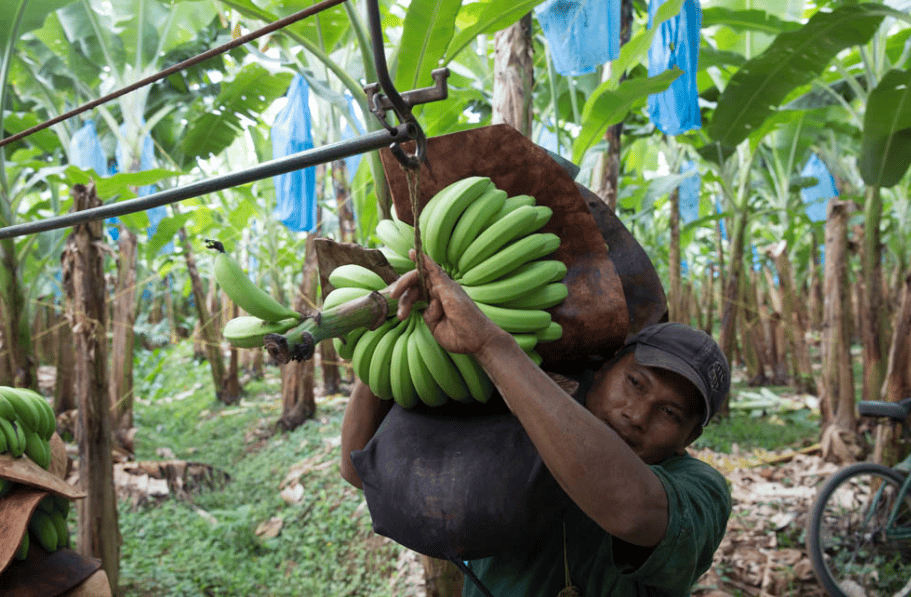Last year Tunbridge Wells celebrated ten years of being a Fairtrade town. Now, as we begin this year’s Fairtrade Fortnight, enthusiast Mandy Flashman-Wells tells Eileen Leahy why it’s vital we continue to support the world’s poorest producers.
THE national Fairtrade Fortnight started on Monday and runs until March 11. During this time, the Fairtrade Organisation encourages the British public to think about the type of
products they buy and question whether they are ethically sourced or not. Each Fairtrade Fortnight has a different theme, and this year’s is to ‘Come On In’ challenging the public to open their doors to fair trade and help ‘close the door on the exploitation facing the
people who produce the things we love to eat, drink, and wear’.
It also invites us to come into the world of the people who grow our food to see what life can be like when farmers and workers aren’t paid fairly, and it explores how businesses, farmers, workers and shoppers come together through Fairtrade to change this.
Over the next two weeks there will be thousands of events taking place all over the UK, including special breakfasts and bake-offs, and Tunbridge Wells has plenty going on to mark the event, too. The campaign for it to become a Fairtrade Town started in 2004, and after three years of sustained work it was awarded its Fairtrade Town status in 2007.
According to Mandy Flashman-Wells, from Tunbridge Wells’ Fairtrade Town Group – an
initiative run by the Tunbridge Wells Churches Social Responsibility Group – Fairtrade has at its heart the Bible theme of justice in the marketplace. And this is something we can all help with, she says: “In order to achieve and maintain Fairtrade Town status, the
involvement and support of the council, businesses, local shops, schools, faith and
community groups continues to be essential. The community has played a central role in gaining and maintaining Fairtrade Town status, but we are hoping that together we can do more.”
This, she says, includes getting local schools working towards gaining Fairtrade School
status and getting more businessesinvolved, which would mean gaining the Fairtrade Workplace of World Changers award. “It would be great if visitors were offered Fairtrade in our hotels, public houses and restaurants right across the town,” Mandy adds. “Fairtrade Town status, says much about the citizens of Tunbridge Wells. Together we are working for trade justice and standing up for the people who produce our food.” Anyone who is thinking about making a change to Fairtrade at home has a huge range of choices, says Mandy. “As individuals, we have the power to end exploitation. The impact
of our simple choices, like our morning cup of tea or coffee, can make a real difference to the lives of producers across the world.”
The Fairtrade fortnight events in Tunbridge Wells will be focusing on workers in the football and jewellery industries.
“Whilst many people recognise the Fairtrade mark on food products, very few know about the plight of those workers who make the 40 million footballs sold worldwide every year, or of the gold miners who are suffering with poverty and working in terrible conditions, so we decided to focus our events slightly differently this year,” Mandy comments.
Using the theme of ‘Play Fair, Pay Fair’, St Gregory’s Catholic School and Tunbridge Wells Grammar School for Boys are holding interschool Fairtrade football tournaments during Fairtrade Fortnight, and a similar tournament is being planned with some primary schools.
There is also a Gold event at the Town Hall which hopes to raise the profile of Fairtrade gold. “Having few other options for earning a living, 16 million men, women and children are pushed into small-scale gold mining by poverty,” Mandy explains. “They work in hazardous conditions with very few health and safety measures, using dangerous chemicals such as mercury and cyanide to extract the gold. This presents dangers
to the miners’ health, pollution of the environment and contamination of local water supplies. “Fairtrade is working with these miners to help them improve working conditions, eliminate child labour and to change the way they handle and use chemicals, protecting not only their own health, but that of the environment.
“Miners are paid a fair price plus a premium to invest in their families and communities.”
You can find more information about the campaign at: www.fairtrade.org.uk/fortnight
Follow #FairtradeFortnight to keep up to date with all the latest social media activity.
To find out more about what’s happening to support the fortnight in Tunbridge Wells,
please email: contact@twfairtrade.org or visit www.twfairtrade.org.uk
? Fairtrade started more than 22 years ago and is the most widely recognised ethical
label in the world. There are now over 4,500 Fairtrade certified products for sale in the UK
? The organisation currently works with 1.6 million farmers and workers across 74 developing countries, providing a safety net against volatile market prices and the
Fairtrade Premium
? The concept behind Fairtrade is simple, products labelled with the Fairtrade mark
provide a guarantee to consumers that the farmers and workers involved in its production
have received a fair price for their products
? In turn, they can support their communities and families at home, improving healthcare,
education, business development and infrastructure
? Last year’s Fairtrade campaign saw more than 5,000 events held in communities, schools, workplaces and places of worship across the UK








